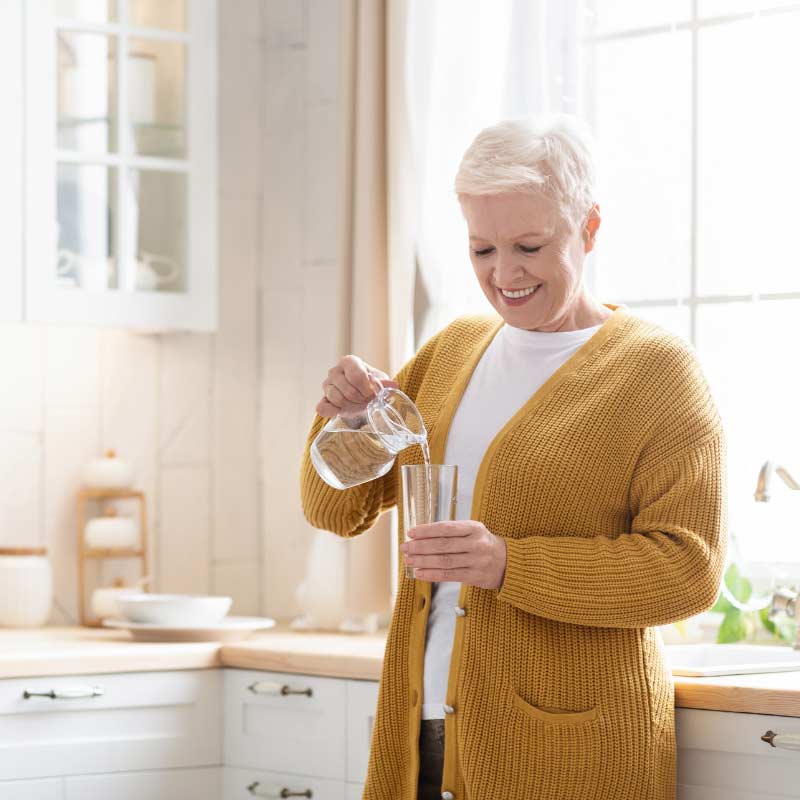The Importance of Staying Hydrated as You Age
Drinking enough water is important for everyone, but it’s especially important for older adults.
Keep reading to learn more about the importance of hydration as we age, as well as a few handy tips to keep you hydrated every day.
Why is Hydration Important for Older Adults?
The human body is made up of around 60% water—fluids help our cells, organs, and tissues function properly. When we don’t drink enough water to replenish these fluids, our body can’t function the way it should.
Normally, our body sends us signals to tell us we need more water—in other words, we get thirsty. But, as we age, our sense of thirst dwindles, making it difficult to stay conscious of our hydration level. Plus, in our older years, we tend to lose fluid more quickly than when we were young. So, to keep our body happy and the doctor at bay as we age, it’s extra important for us to drink the recommended amount of water every day.
Signs of Dehydration
Even mild cases of dehydration can cause a heap of unpleasant symptoms. Keep an eye out for these warning signs and act promptly.
- Fatigue
- Confusion
- Cracked lips
- Dizziness
- Dry mouth
- Rapid heart rate
- Headaches
- Muscle cramps
- Infrequent urination, or dark-coloured urine
How to Help Hydration
How much water should an older adult drink per day to stay hydrated? On average, most adults should aim to drink at least eight glasses of water a day, unless advised otherwise by a registered GP.
Build a Habit
Half the battle of staying hydrated is actually remembering to drink water. To combat this, try building a habit around your water intake. Bring your water bottle with you wherever you go—out into the garden, down to the local shops, or when you go for a walk. Also, try drinking a full glass of water at predictable intervals during the day—as soon as you wake up, for example.
Eat Hydrating Foods
If drinking fluids is challenging for you, or you’d like to boost your fluid intake, try adding some water-rich foods to your diet. These include watermelon, lettuce, cucumber, strawberries, tomatoes, and more. Soups and broths can also increase your hydration, as long as they don’t contain a heap of salt!
Keep it Interesting
If you’re used to sipping on sugary soft drinks or fruit juices, it might be difficult to switch to plain old water. So, try adding some fruit to your drink bottle each day. Slices of lemon, lime, or cucumber make a great match with water. Likewise, strawberries and other seasonal fruits will give your water a little extra something.
Note: always consult your doctor when making any changes to your diet or water intake. If you’re experiencing the symptoms of dehydration, consult your GP immediately.
Could you use a little extra help as you age? Here at Simply Helping, we offer a wide range of in home care services for older Australians, including help with personal care and nutrition! Click here to learn more and contact us today.





